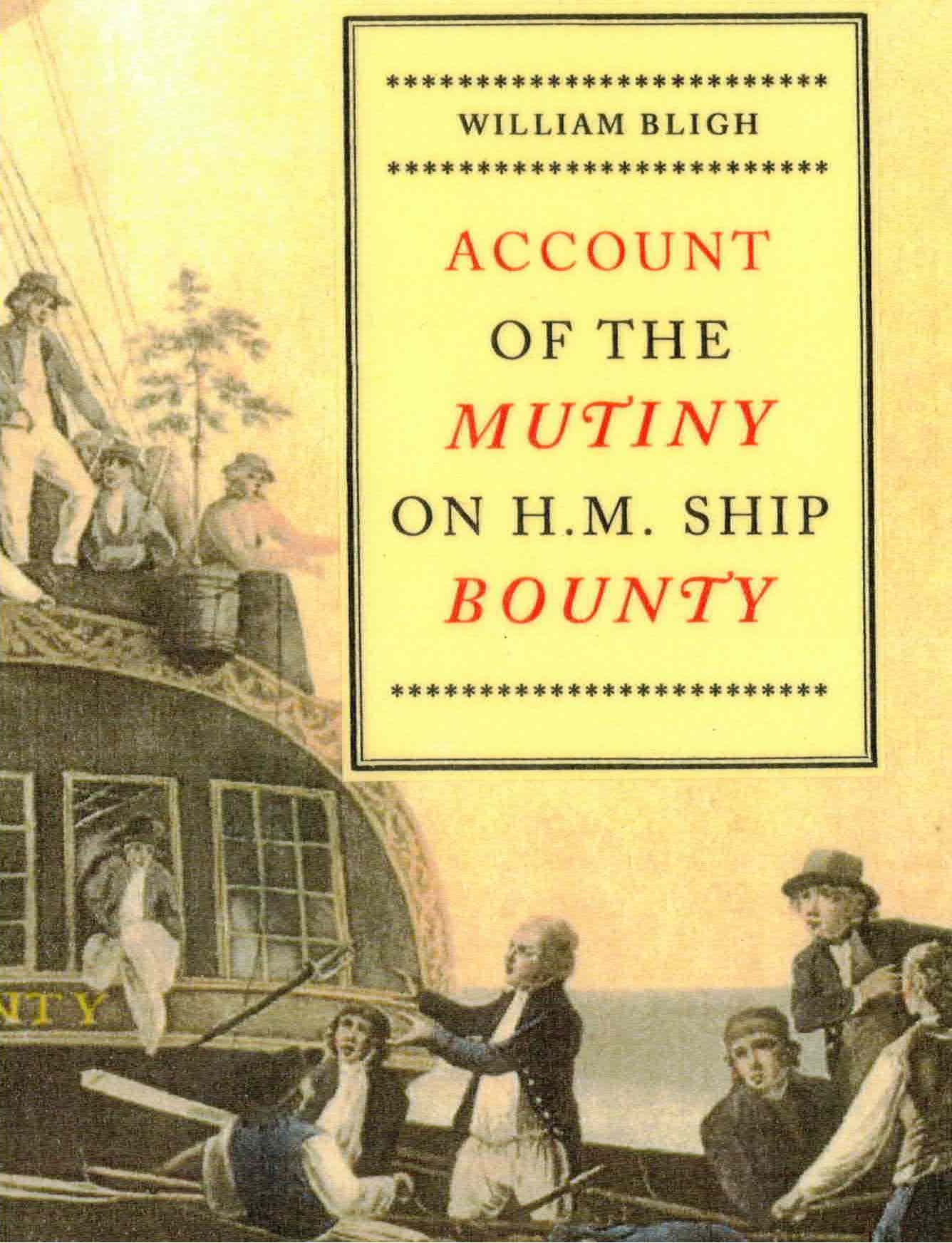Twenty-three days out of Tahiti, a portion of the Bounty’s crew and some of its officers mutinied against Captain William Bligh. They awoke him early in the morning and marched him up on deck. Once there they asked who would be joining the mutiny and who would like to go in the boat with the Captain.
Despite the near unanimous loathing of Bligh, far more crew decided to join him than the mutineers, led by First Mate Fletcher Christian, anticipated.
To paraphrase the iconic line from Jaws, they were going to need a bigger boat.
So Christian arranged for Bligh and his followers to take the longboat, a small amount of supplies and cast them off.
It was rare for a mutiny to occur at sea like this one did. Most of the time, mutinies occurred when a ship was in port and the crew had not received fair pay. So why did it happen?
On Captain William Bligh’s part, he could not understand why the crew – including some of the officers – of the Bounty mutinied against him. He reiterated this statement constantly and to anyone who would listen. He then immortalised it in his carefully constructed and edited narrative of the mutiny and his miraculous survival called ‘Account of the Mutiny on HM Ship Bounty’.
If he was to speculate, he said, it was the crew’s desire to return to the arms of the Tahitian women that motivated them. But if this was the case, why not just refuse to board the ship? Why did it take 23 days?
For some years, the British Admiralty accepted Bligh’s reasoning as fact. He certainly seemed like the kind of man who would blame unsuspecting and innocent women for the crimes of men.
But over time, other survivors emerged. They told a very different tale. They suggested that Bligh’s foul temper, constant disapproval and verbal abuse had caused so much disagreement and unhappiness that the crew had no choice but to mutiny. Since Bligh’s experience on the Bounty had done nothing to cure him of his exceptionally unpleasant personality, as the years passed, this counter-argument gained more support.
However, although Bligh was on the more extreme end of naval captain misbehaviour, he was certainly not an outlier. Although he was verbally abusive, he did not utilise excessive violence when compared to other captains of his time. In addition, every crew member knew that every voyage had a determined end. All they needed to do was hold on a few more months and they would never have to sail with Bligh again.
The key lay with the mutiny’s leader, Fletcher Christian. Unfortunately, he never gave any reason for the mutiny to anyone who wrote it down. Others supported the abuse argument. They observed: ‘whatever fault was found, Mr Christian was sure to bear the brunt of the Captain’s anger’ and that Christian himself said to Bligh, ‘Your abuse is so bad that I cannot do my Duty with any Pleasure. I have been in hell for weeks with you.’
So another school of thought was that Christian mutinied because he just could not take Bligh’s abuse any longer. It is possible that he also had some kind of psychological break; or already suffered from mental ill-health exacerbated by Bligh’s constant tirades towards him. Perhaps in his condition, he merely needed to get off the ship and he needed to get off now.
Despite 200 years of historians examining the story and arguing in favour of Bligh or Christian, the truth is that nobody really knows why Christian mutinied against Bligh.
Perhaps a more significant question lies in why so many joined him. More importantly, why did officers join the mutiny when they would have been well aware of the career suicide they were committing and the dire consequences if they were caught?
Recently, Professor Alan Frost from La Trobe University in Melbourne floated a new theory. He believes that the mutiny occurred because of the way Bligh, as ship’s pursuer, controlled the food onboard.
Remember, access to food was very important to seamen and a steady supply of it was one of the only perks of a very dangerous job. But Bligh used to withhold it as punishment. As pursuer, he personally benefited financially by doing this. This meant that he was essentially robbing everyone onboard of their allowance from the Navy.
When the mutiny occurred, 23 days out of Tahiti, Bounty was almost fully stocked and well-provisioned. But Bligh again implemented his displeasure at his crew and officers by reducing all access to food at a time when everyone knew it was in plentiful supply.
Professor Frost believes that this was the last straw and the reason why the mutineers decided to back Christian.
Many would come to regret the decision.



